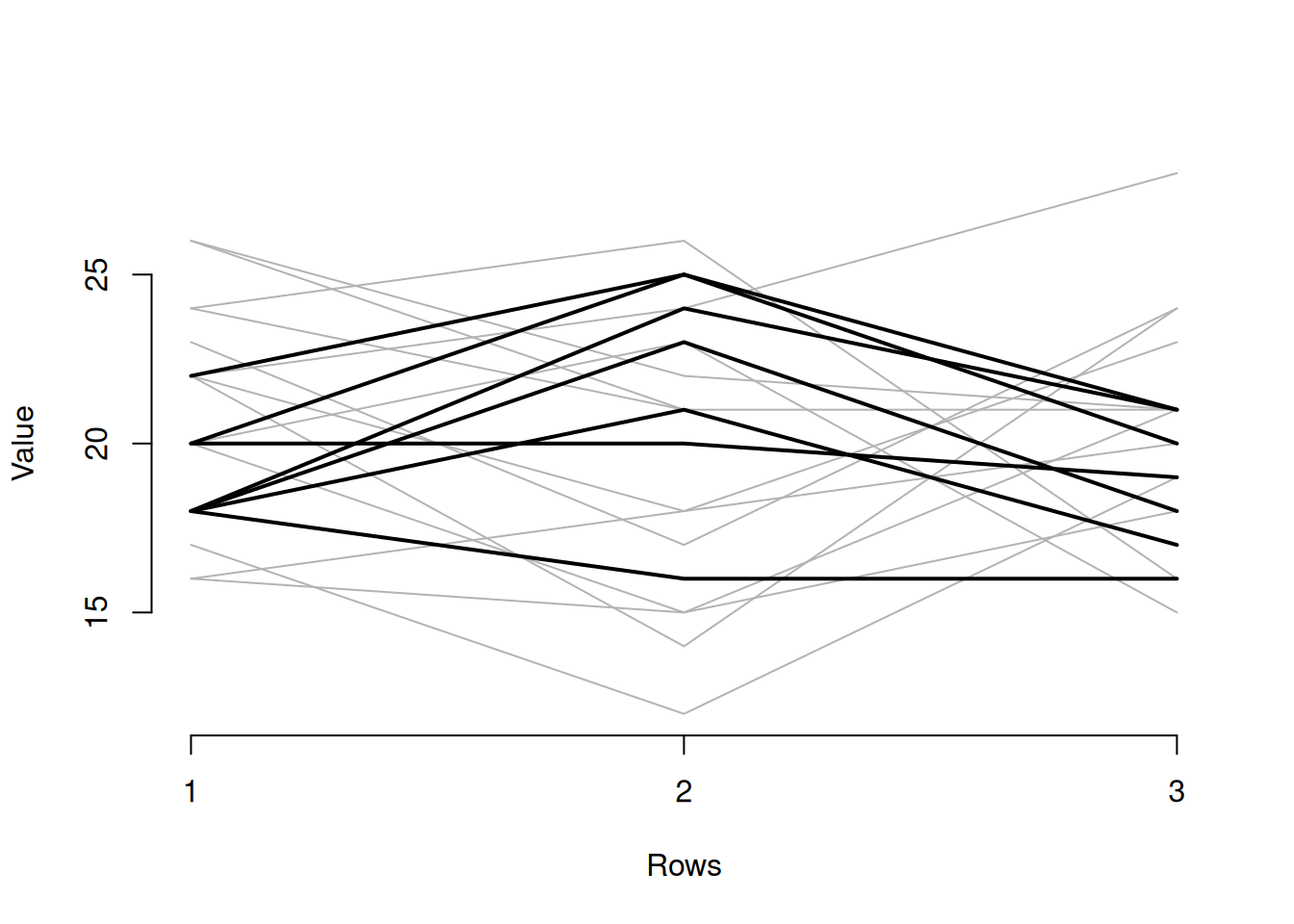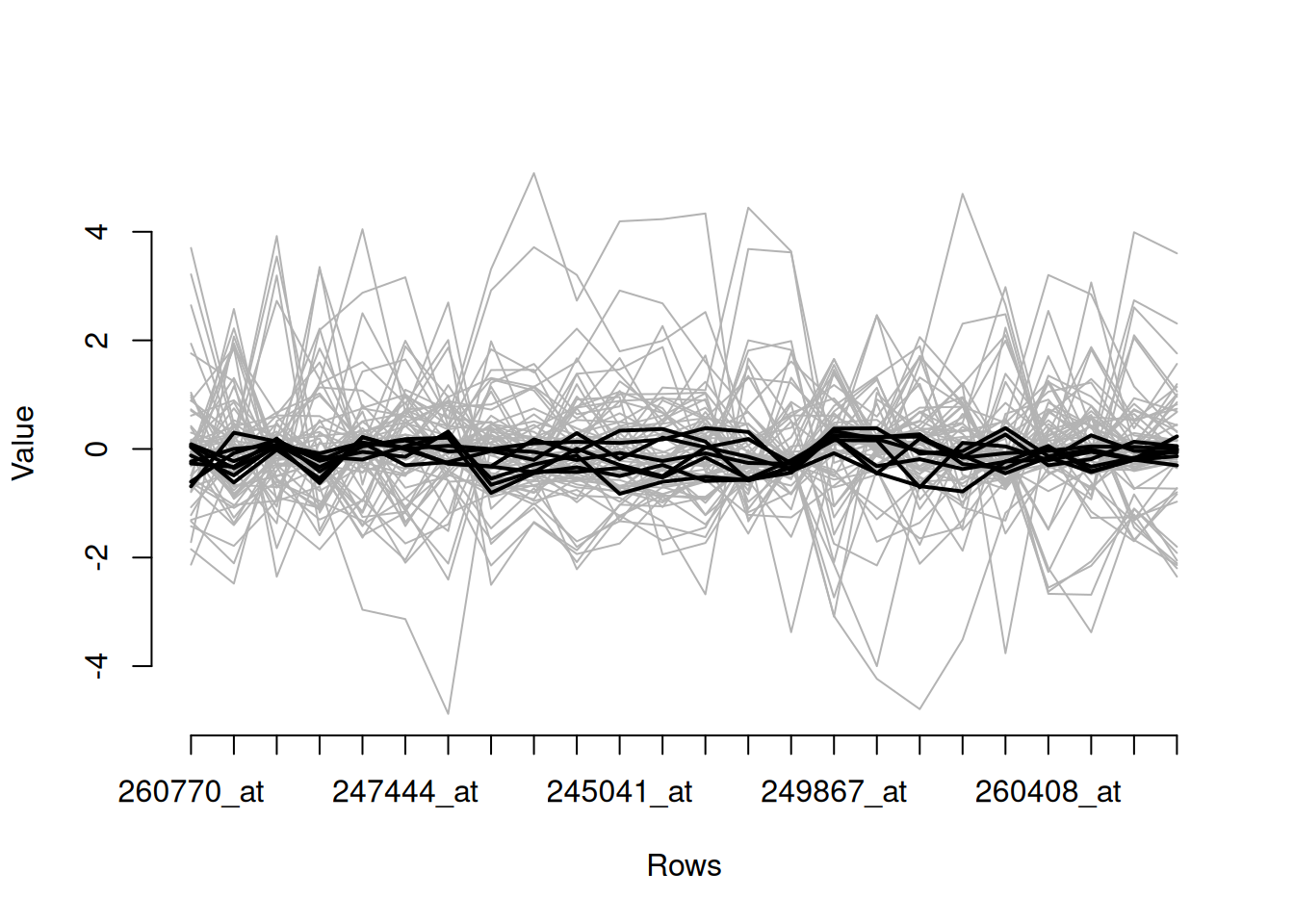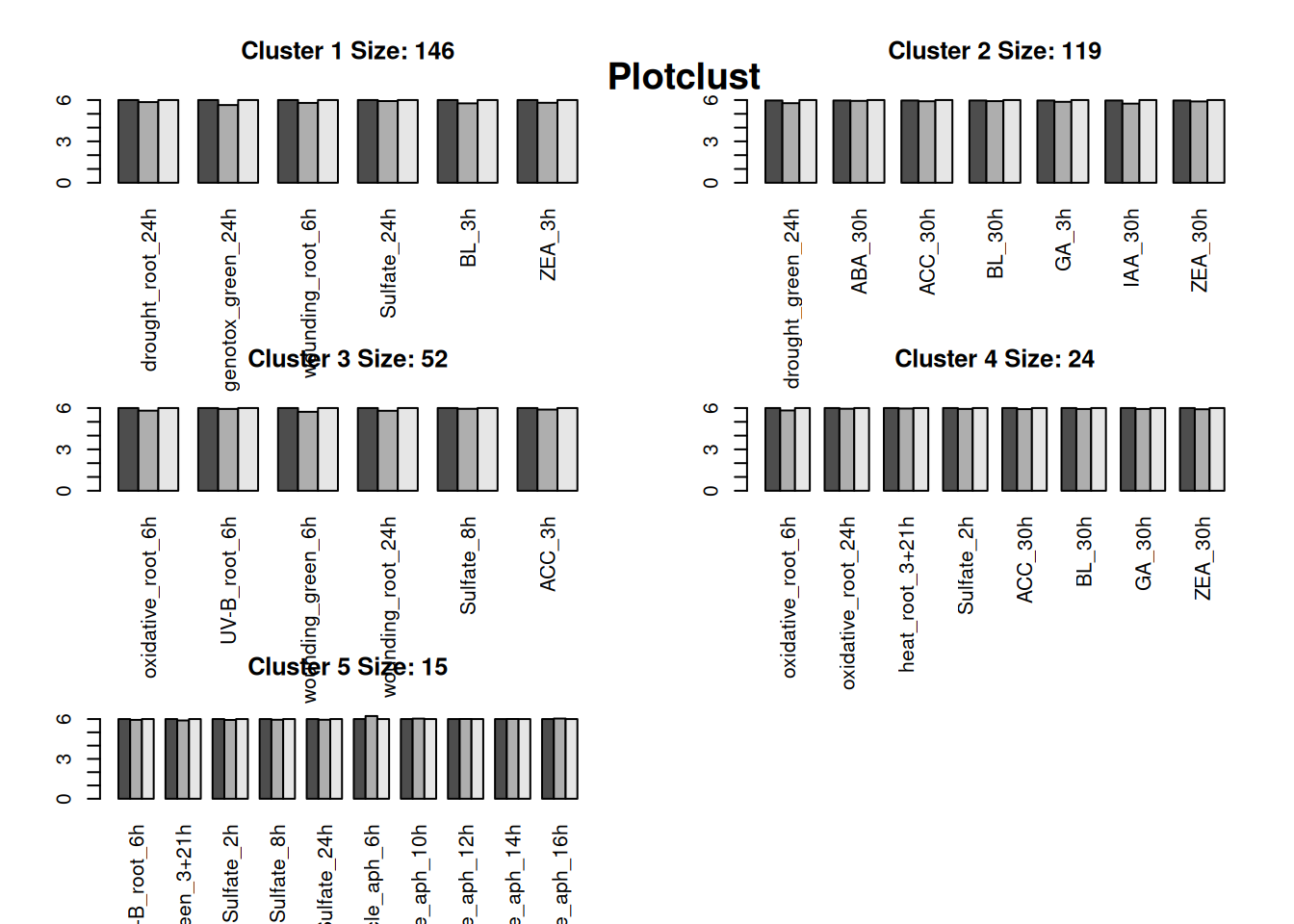19.2 Biclustering
THIS SECTION IS UNDER DEVELOPMENT. PLEASE CHECK BACK LATER
20200902
library(biclust)
tds <- matrix(rbinom(400, 50, 0.4), 20, 20)
res <- biclust(tds, method=BCCC(), delta=1.5, alpha=1, number=10)
res##
## An object of class Biclust
##
## call:
## biclust(x=tds, method=BCCC(), delta=1.5, alpha=1, number=10)
##
## Number of Clusters found: 4
##
## First 4 Cluster sizes:
## BC 1 BC 2 BC 3 BC 4
## Number of Rows: 7 6 4 3
## Number of Columns: 5 6 6 7## $Bicluster1
## [,1] [,2] [,3] [,4] [,5]
## [1,] 22 21 22 19 18
## [2,] 17 22 18 17 19
## [3,] 23 25 24 20 20
## [4,] 23 23 23 24 22
## [5,] 18 18 19 16 17
## [6,] 20 23 22 23 21
## [7,] 25 24 21 21 20
##
## $Bicluster2
## [,1] [,2] [,3] [,4] [,5] [,6]
## [1,] 21 21 17 19 20 24
## [2,] 19 19 16 18 17 21
## [3,] 24 22 22 18 21 23
## [4,] 24 19 19 19 21 24
## [5,] 19 19 15 16 18 21
## [6,] 21 19 16 15 22 19
##
## $Bicluster3
## [,1] [,2] [,3] [,4] [,5] [,6]
## [1,] 21 21 21 20 22 17
## [2,] 21 22 22 20 22 20
## [3,] 14 20 18 19 16 14
## [4,] 15 17 15 17 17 16
##
## $Bicluster4
## [,1] [,2] [,3] [,4] [,5] [,6] [,7]
## [1,] 18 18 18 20 18 22 20
## [2,] 16 24 21 20 23 25 25
## [3,] 16 21 17 19 18 21 20
data(BicatYeast)
tds <- discretize(BicatYeast)
res <- biclust(tds, method=BCXmotifs(), alpha=0.05, number=50)
res##
## An object of class Biclust
##
## call:
## biclust(x=tds, method=BCXmotifs(), alpha=0.05, number=50)
##
## Number of Clusters found: 15
##
## First 5 Cluster sizes:
## BC 1 BC 2 BC 3 BC 4 BC 5
## Number of Rows: 146 119 52 24 15
## Number of Columns: 6 7 6 8 10

tds <- tribble(~x, ~y,
1, 1,
2, 1,
1, 0,
4, 7,
3, 5,
3, 6)
res <- biclust(as.matrix(tds), method=BCCC(), delta=50, alpha=0, number=5)
res##
## An object of class Biclust
##
## call:
## biclust(x=as.matrix(tds), method=BCCC(), delta=50, alpha=0,
## number=5)
##
## There was one cluster found with
## 6 Rows and 2 columnsYour donation will support ongoing availability and give you access to the PDF version of this book. Desktop Survival Guides include Data Science, GNU/Linux, and MLHub. Books available on Amazon include Data Mining with Rattle and Essentials of Data Science. Popular open source software includes rattle, wajig, and mlhub. Hosted by Togaware, a pioneer of free and open source software since 1984. Copyright © 1995-2022 Graham.Williams@togaware.com Creative Commons Attribution-ShareAlike 4.0
